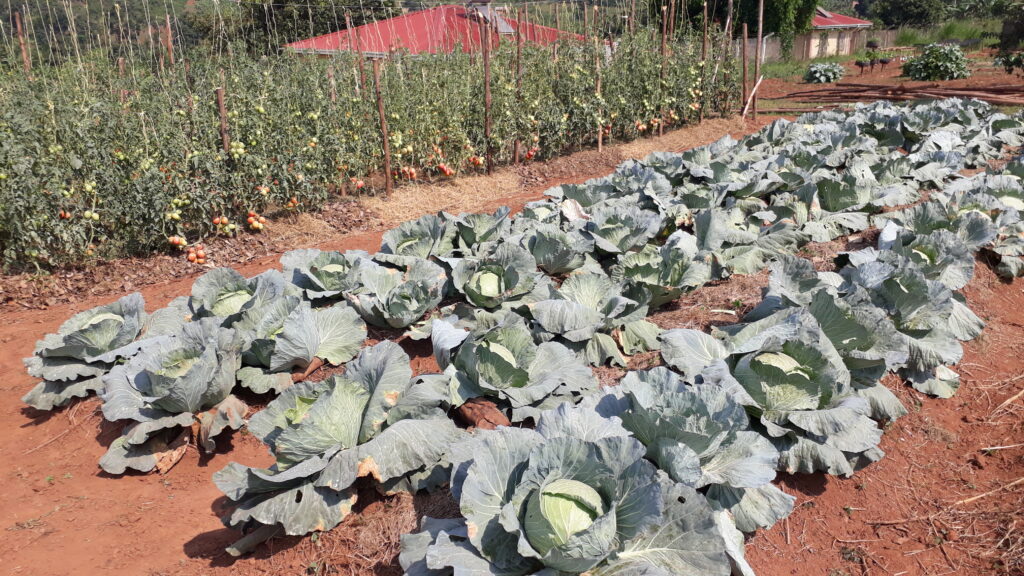At A Glance
Uganda’s agricultural sector remains the engine of transformation contributing tremendously to the national economic growth, poverty reduction, food security and export performance.
Uganda’s agricultural sector remains the engine of transformation contributing tremendously to the national economic growth, poverty reduction, food security and export performance.
The development of the agriculture sector is expected to contribute to national wealth creation and increased employment along the agricultural value chains in a sustainable manner (MAAIF, 2016).
However, the human resource capacity and mindset to transform agriculture are limited and yet they are very critical. Through the Five-Year Strategic Plan (2021/22 – 2025/26), the National Farmers’ Leadership Centre (NFLC), contributes to three of the national development goals of increasing sustainable production, productivity and value addition in key growth opportunities; enhancing human capital development; and strengthening mechanisms for quality, effective and efficient service delivery.
Further to that, the Plan contributes to the six strategic objectives of the National Agriculture Policy.
UNIQUENESS OF NFLC
National Farmers’ Leadership Centre training activities aim at raising capable farmer leaders, civic and political leaders and other categories of leaders. They are equipped, not only with knowledge and technological skills, but also with the right attitudes toward holistic improvement of social lifestyles.
The leaders are also supported to develop a passion for achieving goals, good personal and public morality and ethics, with a will and perseverance to overcome all challenges and turn nothing into something. The following aspects make the Centre unique:
- Quality trainers – The trainers are highly skilled and subject matter experts, dynamic, interactive and practical in approach. Quality is maintained through a rigorous training of trainers’ programme. The core NFLC staff are equipped with mindset transformation and agricultural leadership skills having been trained at the Canaan Global Leadership Centre in partnership with Yonsei University, in Korea; and at the Saemaul Centre, South Korea.
- External trainers – The Centre depends on both in-house and out-sourced skilled training resource. A small “in-house” training team is supported by subject matter specialists sourced from Government Ministries, Departments, Agencies and Local governments. All these trainers have undergone mindset transformation and agricultural leadership training.
- Leadership-led – NFLC programs groom leaders to overcome poverty with their enhanced capacity and mentality. NFLC believes that the goal of eradicating extreme global poverty can only be achieved when community development efforts are spear-headed by leaders equipped with the mindset of self-reliance and diligence, through selfless work, service, and sacrifice; leaders who have themselves experienced change.
- Learning content – The Centre offers a wide variety of courses targeting mindset transformation, leadership and farming. They include practical action planning, management training, entrepreneurship and farming methods, which are essential in addressing the root causes of poverty.
- Practical orientation – The training programs are designed to allow trainees to benefit from the core training at the Centre as well as attaining practical experiences shared and skills imparted by the already practicing out-sourced trainers.
- Replicability – The training equips the trainees with the ability to independently replicate this training in their communities. The training programs are therefore developed and implemented as training of trainers’ sessions to ensure a multiplier effect. They are also a source of revenue for the NFLC trainees.
- Follow-up capacity development – The trainees are supported and coached through follow up visits conducted by trainers. The follow up activities serve several purposes including backstopping; guiding and monitoring of the training of farmers.
- Centre location – The Centre is located away from town which provides the ambiance and environment suitable for learning, reflection and concentration
STRATEGIC DIRECTION
The NFLC has a five-year Strategic Plan (2021/22 – 2025/26) which is guided by the national planning framework and links the activities of the Centre to the second Agriculture Sector Strategic Plan (ASSP II) of the Ministry of Agriculture, Animal Industry and Fisheries; the National Development Plan (NDP III); and the National Vision 2040.
It contributes to Uganda’s regional and international obligations, including the East African Community (EAC) Development Strategy and the Sustainable Development Goals (SDGs), Comprehensive Africa Agriculture Development Programme (CAADP) a growth oriented agricultural development agenda of the African Union (AU) and the New Partnership for African Development (NEPAD).


